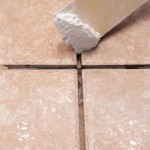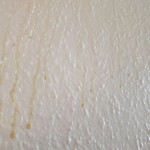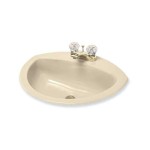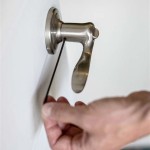Fishy Smell In Bathroom Sink: Essential Aspects
An unpleasant fishy smell in the bathroom sink can be a nuisance, indicating underlying issues with drainage or plumbing. Understanding the essential aspects of this problem is crucial for effective troubleshooting and resolution. This article explores the key factors that contribute to a fishy smell in the bathroom sink, providing insights into their causes, potential solutions, and preventive measures.
Causes:
- Hair and Soap Scum Accumulation: Hair, soap scum, and other organic matter can accumulate in the drainpipes, creating a breeding ground for bacteria that produce foul odors.
- Clogged Drain: A clogged drain due to hairballs, soap residue, or other debris can trap water and allow bacteria to thrive, resulting in a fishy smell.
- Dry P-Trap: The P-trap under the sink is designed to hold water, forming a barrier that prevents sewer gases from entering the bathroom. A dry P-trap can allow sewer gases to escape, creating a fishy or sulfuric odor.
- Damaged Seals: Worn or damaged seals around the drainpipes or sink can allow water to leak, creating a moist environment for bacteria to grow and produce odors.
- Bacterial Growth in Drainpipes: Bacteria, such as Pseudomonas, can form slimy biofilms inside drainpipes, releasing foul-smelling gases as they consume organic matter.
Potential Solutions:
- Regular Cleaning: Regularly cleaning the sink, drain, and P-trap with a drain cleaner or baking soda and vinegar can remove hair, soap scum, and bacteria, preventing odor buildup.
- Unclogging the Drain: Using a drain snake or chemical drain cleaner can remove clogs that trap water and create a breeding ground for bacteria.
- Filling the P-Trap: Running water down the sink until it fills the P-trap can restore the water barrier and prevent sewer gases from escaping.
- Replacing Worn Seals: Damaged seals should be replaced to prevent water leaks and the growth of bacteria.
- Enzyme Drain Treatment: Enzyme drain treatments contain beneficial bacteria that consume organic matter in drainpipes, reducing odors.
Preventive Measures:
- Use Hair Catchers: Installing hair catchers over the drain can prevent hair from entering the drainpipes and causing clogs.
- Avoid Pouring Grease: Grease should not be poured down the drain as it can solidify and create clogs.
- Regular Maintenance: Periodic cleaning and inspection of the sink, drain, and P-trap can prevent the buildup of odor-causing substances.
- Ventilation: Ensuring proper ventilation in the bathroom can help dissipate odors and prevent moisture buildup.
- Professional Inspection: If the fishy smell persists despite home remedies, it is advisable to contact a plumber for a professional inspection to identify and address any underlying plumbing issues.
By understanding the essential aspects of a fishy smell in the bathroom sink, homeowners can effectively troubleshoot the problem, implement appropriate solutions, and prevent its recurrence. Regular maintenance, proper cleaning habits, and timely repairs can ensure a fresh and odor-free bathroom environment.

Fish Smell In Your Bathroom It S Probably This

Why Is There A Bad Smell In My Bathroom M J Burt

How To Treat Smelly Water Finkens

Help My Toilet Smells Like Fish

Fish Smell In Your Bathroom It S Probably This

How To Clean A Stinky Sink Drain Home Repair Tutor

Smelly Fish Restaurant Bathroom Tiktok Search

5 Ways To Reduce Bathroom Odours And Shower Drain Smells Air Wick

Fish Smell In Your Bathroom It S Probably This

How To Clean Smelly Drains Living By Homeserve
Related Posts







